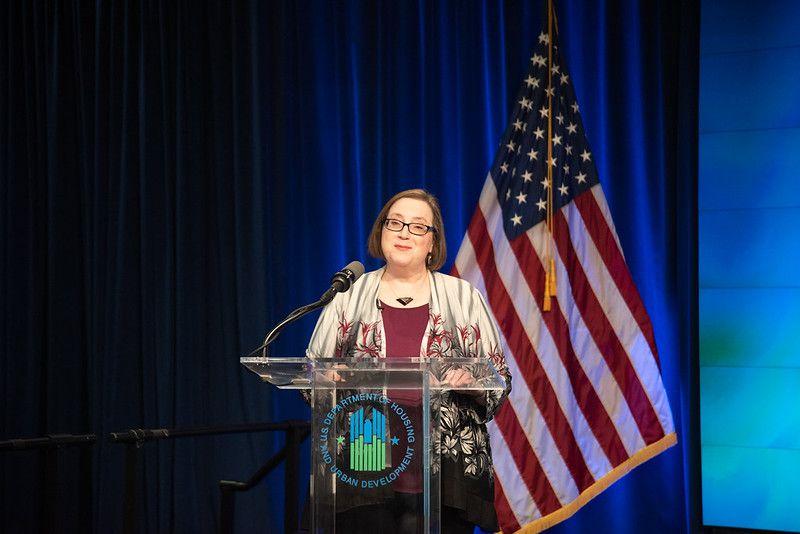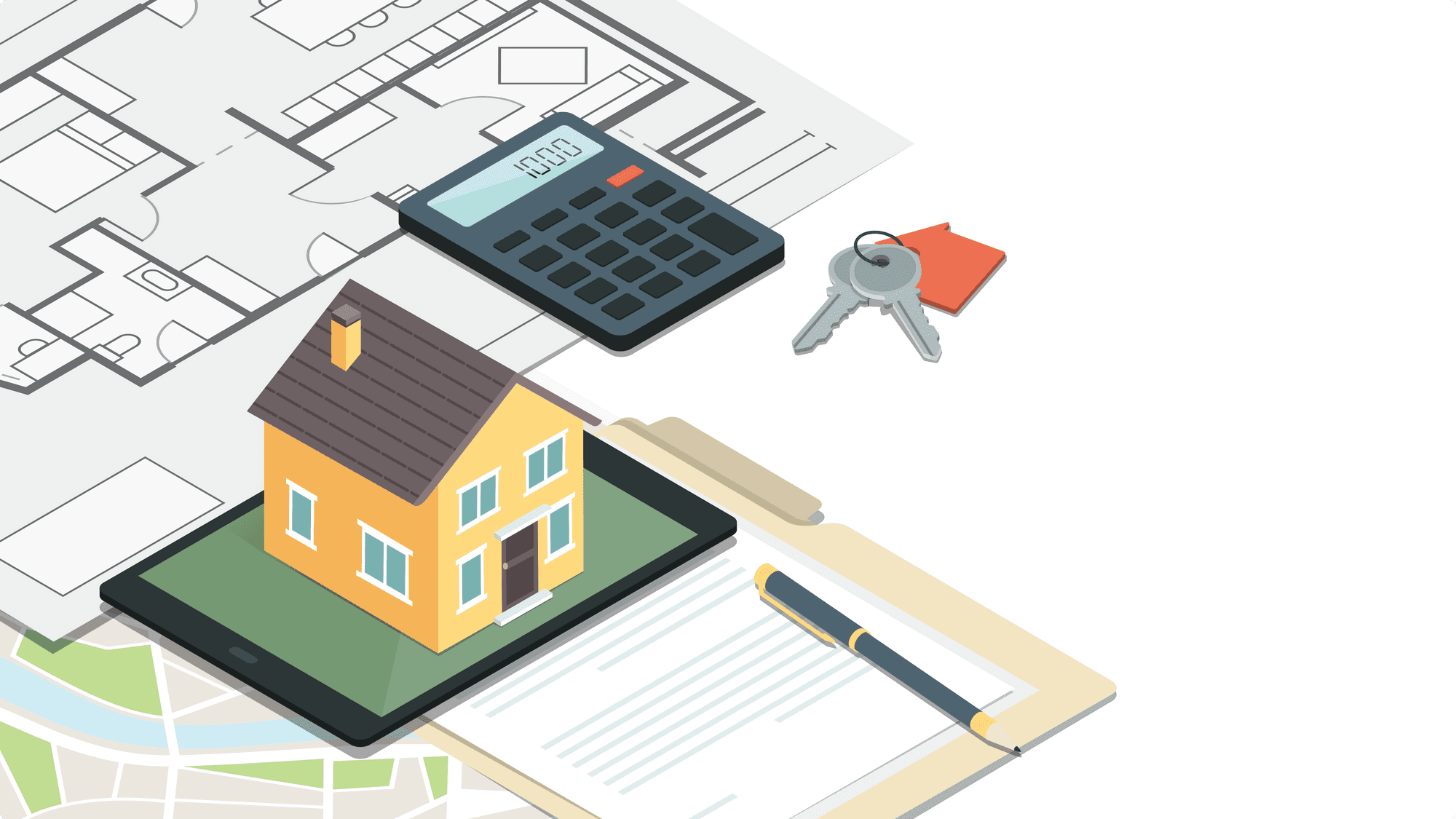
Getting a Mortgage When You're Self Employed: Here's What You'll Need
Here's how to get a home loan if you are your own boss.

Applying for a mortgage is pretty straightforward for traditional W-2 employees. For the self-employed, the process is slightly different. The lender will still evaluate your application based on the same criteria like your credit score and payment history, as well as your debts, income, and assets. The difference is, your income may not be as clear cut as an employee who has a set salary that’s easy to identify on a W-2.
For the self-employed, some extra steps may be necessary to get your loan approved. The good news is, these steps aren't necessarily difficult, and being self-employed doesn't restrict you from getting approved for a mortgage.
What is the Definition of "Self-Employed"?
Today in the gig economy, people are earning a living in a lot of different ways. It may not be so clear cut as to whether you would fall under the classification of self-employed. Mortgage lenders may consider you to be self-employed if:
- You own 25% or more of a business
- At least 25% of your income is from self-employment
- You receive 1099 tax forms instead of a W-2
- You're a contractor or freelancer
Why is the Mortgage Approval Process Different if You're Self-Employed?
When evaluating a mortgage application, the lender's priority is to determine the applicant's ability to repay the loan. Credit score and payment history with other mortgages or loans will indicate the probability of successful repayment, but the applicant's income is also a factor. After all, you need to have the income to pay the hefty mortgage payment on time each month.
The income for traditional W-2 employees is easy to determine. The W-2 clearly lists the income, and recent paychecks or pay stubs can be used to verify that the income hasn't changed significantly since the last W-2.
However, etermining the income of a self-employed applicant highlights one of the complex aspects of what a mortgage underwriter does. Those who are self-employed typically do not have a consistent pay rate, and money may flow in unpredictably. What's even more challenging is determining actual income. Those who are self-employed often use tax deductions that reduce taxable income.
The bottom line is that a traditional employee's income is more easily verifiable than the income of someone self-employed. That means the application process may include a few additional steps for anyone self-employed. By going through these extra steps and providing the specific documentation requested by the bank or lender, you can prove you have sufficient income to qualify for the mortgage.
How to Document Your Self-Employed Income
The lender will request specific documentation to verify your income if you’re self-employed. While the specifics can vary, here are the documents commonly needed:
- Two years of personal and business tax returns, including all applicable schedules
- IRS Form 4506-T, permitting third parties to access your tax records
- Personal and business bank statements
- Year-to-date profit and loss (P&L) statement
- Balance sheet
- Business license
- Statements or proof of other assets (like investment and retirement accounts)
This is a list of the standard requirements, but some lenders may ask for additional documentation, including a letter or statement from your accountant. You may also need to provide copies of invoices or other proof of your business operations.
What Lenders Want to See
When a bank or lender is evaluating a mortgage for a self-employed applicant, there are a few specific details they're looking for, aside from simply the amount of money that you're making.
- Income stability - How much does your income vary? Is it staying level overall or trending up or down?
- Business history - How long have you been successfully self-employed? A one-year-old business presents a greater risk to a lender than a twenty-year-old, well-established business.
- Financial strength - How much do you have in cash reserves (in both personal and business accounts)?
Are Mortgage Rates Different for the Self-Employed?
Mortgage rates are the same for self-employed individuals as they are for traditional employees, assuming you qualify for the loan. The mortgage itself is not different. The process of proving and verifying income is where the difference lies.
Types of Mortgages for the Self-Employed
The primary mortgage programs available to traditional employees are also open to self-employed borrowers. This includes conforming mortgages (backed by Fannie Mae and Freddie Mac) and government-backed FHA, and VA loans.
Conventional Loans
The government does not guarantee conventional loans, so they tend to have stricter requirements to qualify. Self-employed applicants must have at least two years of self-employment history, or one year of self-employment, and at least two years of employment in a similar role. You'll also need a credit score of at least 620 and a down payment of at least 3%.
A conventional loan is typically the best option if you have a solid credit score and if you're able to put 20% or more down, which allows you to avoid private mortgage insurance (PMI).
FHA Loans
The Federal Housing Administration backs the loans, and they're better for borrowers with damaged credit. The minimum credit score to qualify is only 580. FHA applicants may not have to provide business tax returns if their personal tax returns show an increasing income over the past two years.
VA Loans
VA loans are guaranteed by the Department of Veterans Affairs and are for veterans and their spouses. For those who qualify, VA loans typically offer the lowest interest rates and have no down payment requirements.
Bank Statement Loans
Bank statement loans don't require tax returns or W-2s for income verification. Instead, you'll submit bank statements for the past 12-24 months, and the lender will use the money flowing into the accounts as verification of your income. These mortgages tend to have higher interest rates, so they're usually not the best choice if you can qualify for a different type of mortgage.
Joint Mortgage
A joint mortgage lists two borrowers, and both are evaluated as part of the application process. If you're self-employed, applying for a joint mortgage with a co-applicant who is a traditional W-2 employee can help to show some stable income.
How to Get a Mortgage if You're Self-Employed
Here are some ways to improve your chances of getting approved for a mortgage.
Provide All the Necessary Documentation
Be sure to give the lender any paperwork or documentation requested to verify your income or business operations. Keep in mind that the lender has to go through additional steps to verify your income, and you're able to make their job easier by providing everything that's needed. While it may be inconvenient, it's a necessary part of the process.
Separate Your Business and Personal Expenses
One of the challenges that lenders face with evaluating mortgage applications from self-employed individuals involves drawing a line between personal and business assets and expenses. You can help to clarify things by keeping accurate records and separating your expenses. If you use separate bank accounts and credit cards for personal and business use, it makes the evaluation process more manageable.
Improve Your Credit Score
Your credit score and credit history are always a factor when you're applying for a loan. Having a solid credit score will improve your options and reduce the risk for lenders.
Establish Your Business
The longer you've been in business, the more stable your self-employment income will appear to a lender. If possible, wait to establish your business before applying for a mortgage. Two years is the minimum required in most situations, but having a longer history can help.
Be Willing to Make a Larger Down Payment
Lenders may require a lower loan-to-value (LTV) ratio for self-employed applicants. In this case, you would need to make a larger down payment or purchase a less expensive home. Saving up for a more significant down payment will help your odds of getting the mortgage application approved.
Pay Down Your Other Debt and Build Up Your Assets
Lenders will look at your debt-to-income ratio as a way of gauging your ability to make the monthly mortgage payments. By paying down other debts before a mortgage application, you'll reduce your debt-to-income ratio and make your application more attractive.
Likewise, lenders may also look at your assets when considering the application. Building up assets will show more stability and reduce the risk for the lender.
Final Thoughts
If you're self-employed, the process of getting approved for a mortgage is slightly different than it would be for a W-2 employee. You still have access to the same mortgage programs, but you'll need to go through a few additional steps to verify your income. If you're prepared and have the necessary documents in advance, the process will be faster and easier. Consider the details covered in this article to know what you should expect as a self-employed mortgage applicant, and you should be able to qualify for the loan.




![What is Earnest Money? [Everything You Need to Know in 2025]](/_next/image/?url=https%3A%2F%2Fs3-us-west-2.amazonaws.com%2Fwhatsmypayment.com%2Fcontent%2Fimages%2F2024%2F09%2FEarnest-Money.jpeg&w=3840&q=75)





